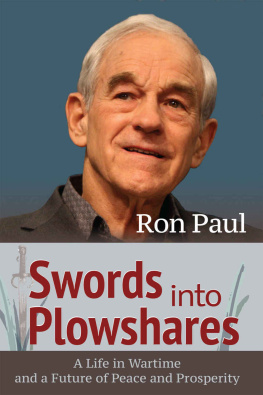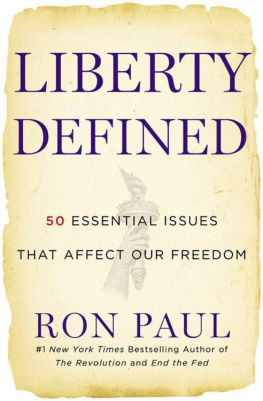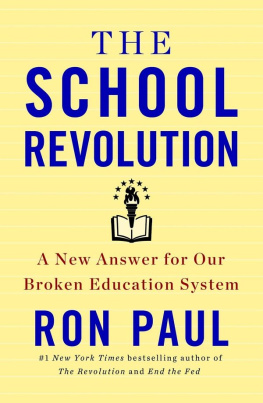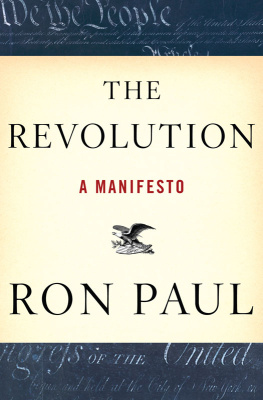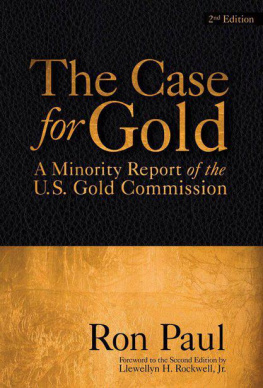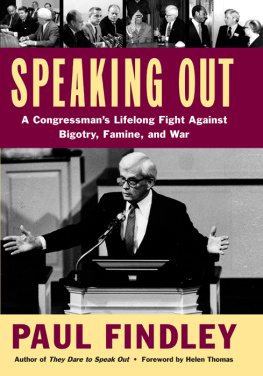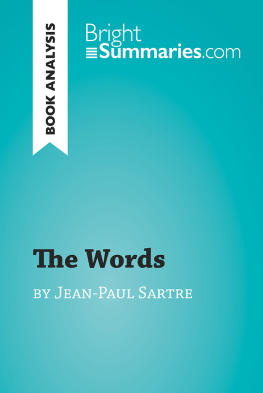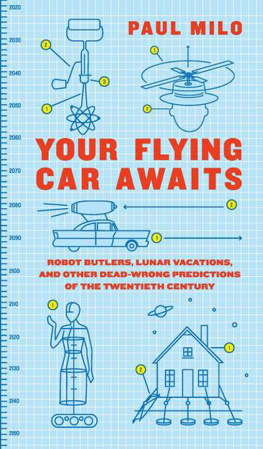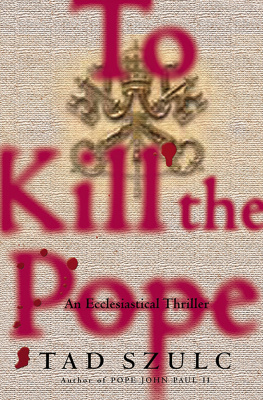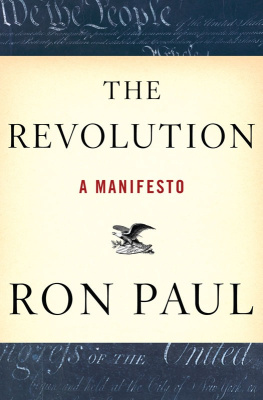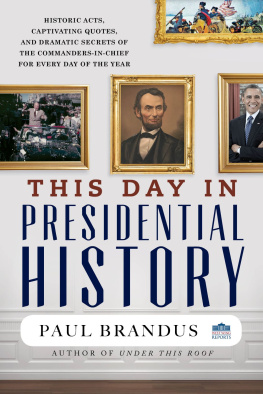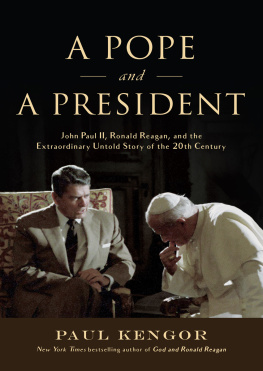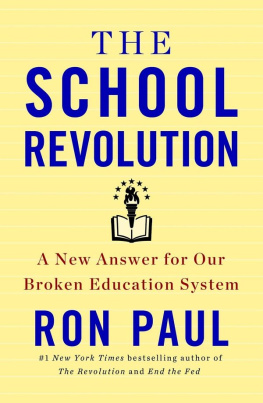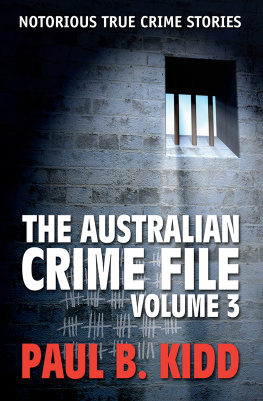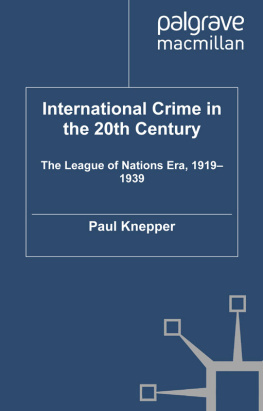Swords Into Plowshares
A Life in Wartime and a Future of Peace and Prosperity
by Ron Paul
copyright Ron Paul 2015
All rights reserved
cover photo by Gage Skidmore
ISBN: 978-0-9964265-1-0
Dedicated to a new generation that seeks peace and
rejects the notion of inevitable war.
Special thanks to:
Adam Dick: Editing
Cynthia Fedler: Layout and Cover Design
Daniel McAdams: Managing Editor
Contents
1: Growing Up With War
T here must be lights burning brighter somewhere
Got to be birds flying higher in a sky more blue
If I can dream of a better land
Where all my brothers walk hand in hand
Tell me why, oh why, oh why cant my dream come true?
If I Can Dream Elvis Presley
I was born in 1935. I do not recall a time when war was not being discussed.
December 7, 1941the day the Japanese military attacked Pearl Harboris not etched in my memory. I was six years old then. But the memories of the next three and half years of continued war talk are still vivid.
My dad was an air raid warden. His job on all air raid drills was to sound the siren in our area of town. Though my four brothers and I may not have known the full significance of a potential attack, we all knew that the sirens, easily reachable by any of us, were never to be touched.
During an air raid drill, all lights were absolutely turned off, and the family sat around a console radio listening for news of the certainty that it was all just practice. The siren would then sound again, more softly, as an all-clear signal.
War is death and suffering
None of my brothers were old enough to be drafted; two uncles and several cousins were. Though my dad had three brothers, only one was drafted since the others were permitted to continue to operate the family dairy business. His drafted brother served in the Seabees on the island of Saipan in the Pacific. My mothers brother was also drafted. He was sent to Africa. Both returned after the war. Neither one saw combat.
I well understood what going to war meant.
Several members of the Lutheran church my family attended were drafted and sent to Europe. One of them was Andy Jablonski, a close friend of the family and a burly, energetic type who was about to be married. Andy became a paratrooper. My brothers and I knew him as a special friend. Another individual from our church, Bill Tellhorster, the oldest of eight children and the only son, became an infantryman.
D-Day, June 6, 1944, was a big event for just about everyone in the countrya do or die event for the outcome of the war. The bad news of thousands of deaths and injuries arrived rather quickly. But the invasion was heralded as a great victory.
Andy and Bill were both killed in the invasion. The invasion was a promising and sad event for our family, our friends, and our church. This was only one of the many similar stories for so many people throughout the war.
My family was mainly of German descent. Two great-aunts and their families still lived in Germany during World War II. We as children were taught to pray for their safety. Yet it was the US military that was trying to kill them. Families fighting and killing each other made no sense to me even at that young age. Yet it is characteristic of many wars. This senselessness of brothers fighting brothers was especially frequent in our own Civil War.
My twin cousins were drafted as well and sent to fight in Germany. Both returned home safely. One of them, Pfc. Arthur P. Kaufman, was captured. Toward the end of his confinement he was threatened with execution before being rescued by invading Soviet troops at the end of the war. He kept a diary from the day he was captured on Dec. 22, 1944 until his release on May 23, 1945two weeks after V-E Day. Although he described rough conditions, he was treated reasonably well. For instance, shortly before his release, he was hospitalized and treated for dysentery by a doctor and given medication. Reviewing this incident caused me to think about prisoners of war these last 25 years of nearly constant wars in the Middle East and Afghanistan. Essentially, there have been no prisoners taken. As the Iraqi forces marched home at the end of the Persian Gulf War, many were indiscriminately killed by our pilots. Take no prisoners must have been the orders given. Individuals incarcerated and even tortured at Guantanamo and other detention sites operated by or in cooperation with the US purposely were not termed prisoners of war. That classification would have invited the rules of the Geneva Convention to be followed, with torturing prohibited.
In 1961, as an intern at the Henry Ford Hospital, I worked with a German doctor about my age. I couldnt help but think to myself: Just a few years ago his relatives and mine were trying to kill each otherbecause their governments told them to do so. And today were in medical training together learning how to save liveswhat an irony! I thought to myself, War is such a waste! It made no sense to me then; nor does it today.
As a child I was not aware of the deliberate US choice to saturation bomb cities including Dresden and Hamburg while ignoring the many efforts through international agreements to prevent targeting civilians. The Dresden bombing occurred in February of 1945 when the impending defeat of Germany was clear. One justification for the bombing was to send a message of our strength and determination to our ally the Soviet Union, setting the stage for the Cold War.
Propaganda is wars ally
My grandmotherwho remembered discrimination against German-Americans during World War Ionce explained to me that the German people didnt want the war. It was the government and the politicians who wanted the war, she said. This is generally true for most people around the world. It is why war propaganda is so necessary to generate support or, at least, tolerance for wars.
I never heard during World War II any discussion of the inadvisability of the war. Pearl Harbor silenced the war dissenters and the America First movement. The demand for superpatriotism under the conditions of all-out war meant that the debate was over with the attack on Pearl Harbor by the Japanese. It took decades for any real discussion to emerge regarding how President Franklin D. Roosevelt maneuvered us into a war he longed to be involved in, just as President Woodrow Wilson did for World War I.
Even today, authors who claim correctly, as Patrick Buchanan does in his book Churchill, Hitler, and the Unnecessary War , that both World War I and World War II were unnecessary wars are shunned and ridiculed. Such a suggestion is so at odds with how history is taught in most US schools that many people are unwilling to even consider arguments backing Buchanans conclusion. We should not expect our government schools to provide an unbiased study and a full understanding of our involvement in foreign wars. But that will come as alternatives to government schools, with their federal government controls, develop. Homeschoolers will tend to receive a much more enlightened and accurate history of our foolish foreign entanglements.
As a child during World War II it was hard not to hear constant news about the wars progress. My Dad regularly tuned in to hear Lowell Thomas and Gabriel Heatter for the government slant on the war. Movie theaters always played a newscast with visuals to dramatize the ongoing war. Newspapers of course were important for gleaning what was going on. Those were the vehicles for keeping up with the various battles and war plans we were permitted to hear about. They were also used to prop up support for the war effort. TVs were uncommon, and my family did not have one. There was no internet. There were three major radio networks and mostly submissive large newspapers.

